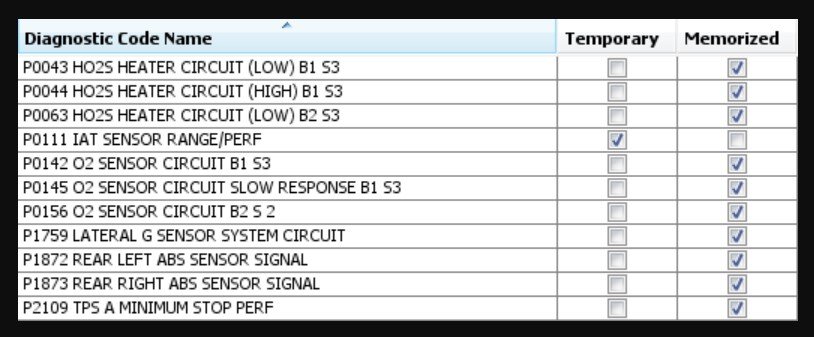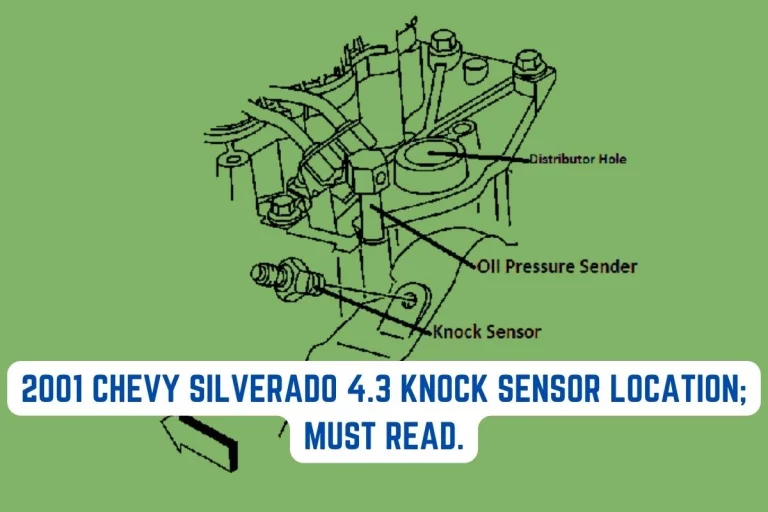Can a Bad Battery Cause O2 Sensor Codes: Exploring the Connection
Oxygen sensors, or O2 sensors, play a critical role in monitoring the exhaust gases of an engine to ensure efficient combustion and minimize emissions. It is not uncommon for vehicles to encounter O2 sensor codes, indicating issues with these sensors.
In this article, we explore the question: Can a bad battery cause O2 sensor codes? By examining the relationship between a vehicle’s battery health and O2 sensor codes, we aim to shed light on this intriguing connection.
Table of Contents
What are O2 Sensor Codes?

O2 sensors are vital components of the engine control system, responsible for measuring the oxygen content in the exhaust gases.
When O2 sensor codes appear, they indicate abnormalities or malfunctions in the sensor readings. These codes are categorized based on the specific issues detected, such as lean mixture, rich mixture, or sensor performance.
What is the Impact of O2 Sensor Codes on Vehicle Performance?
O2 sensor codes can have a significant impact on the overall performance of a vehicle. They can lead to decreased fuel efficiency, increased emissions, and potential drivability issues. Resolving O2 sensor codes is crucial to maintain optimal engine performance and ensure compliance with environmental regulations.
Can a Bad Battery Cause O2 Sensor Codes?
Yes, a bad battery can cause O2 sensor codes. Fluctuations in battery voltage and related electrical system issues can affect the performance of O2 sensors, leading to the appearance of these codes. Maintaining a healthy battery is essential for minimizing such occurrences.
The vehicle’s battery is crucial in supplying power to the engine control system. It provides the necessary voltage for the sensors, including the O2 sensors, to function properly. Therefore, fluctuations or abnormalities in battery voltage can directly affect the readings and performance of the O2 sensors.
What is the Correlation between a Bad Battery and O2 Sensor Codes?
In certain scenarios, a bad battery can indeed contribute to the occurrence of O2 sensor codes. Let’s explore a few potential scenarios:
Low battery voltage
Insufficient battery voltage can cause fluctuations in the electrical supply to the O2 sensors. This can lead to inaccurate readings and trigger O2 sensor codes related to lean or rich mixture conditions.
Voltage spikes
A failing battery may experience voltage spikes, causing sudden increases or decreases in voltage.
These voltage spikes can disrupt the normal functioning of the O2 sensors and result in erroneous readings and subsequent O2 sensor codes.
Battery-related issues
Malfunctioning battery components, such as a weak alternator or corroded terminals, can directly impact the stability and reliability of the electrical system.
Such issues can indirectly affect the performance of the O2 sensors and contribute to the appearance of O2 sensor codes.
How can I determine if a bad battery is causing O2 sensor codes?
To determine the cause of O2 sensor codes, it is recommended to conduct a thorough diagnostic process, which may include checking battery voltage, inspecting the charging system, and addressing any battery-related issues. Consulting a professional mechanic is advisable for accurate diagnosis.
Will replacing the battery resolve O2 sensor codes?
In some cases, resolving battery-related issues, such as replacing a weak battery or addressing charging system problems, can eliminate O2 sensor codes.
However, if the codes persist, further diagnostics may be required to identify and address other underlying issues.
How to address O2 Sensor Codes?
When encountering O2 sensor codes, it is crucial to follow proper diagnostic procedures to pinpoint the root cause accurately. Additionally, checking the health of the vehicle’s battery should be part of the diagnostic process.
Conducting battery tests, inspecting the charging system, and addressing any battery-related issues can help mitigate O2 sensor codes caused by battery irregularities.
Unplugging Mass Air Flow Sensor While Car Is Running; All You Need To Know
Sensor Diary
How to Maintain a Healthy Battery for Optimal Performance?
It is essential to prioritize battery health to ensure optimal engine performance and reliable O2 sensor function.
Regular battery maintenance, including checking the voltage, cleaning terminals, and addressing any battery-related issues promptly, can help prevent potential disruptions to the electrical system and minimize the occurrence of O2 sensor codes.
What damages O2 sensors?
Several factors can damage O2 sensors over time. Here are some common causes of O2 sensor damage:
- Contaminants
Exposure to contaminants like oil, coolant, and fuel additives can coat the sensor and hinder its performance. Contamination can lead to inaccurate readings and sensor malfunction.
- Heat and Exhaust Conditions
O2 sensors are exposed to high temperatures and harsh exhaust gases. Prolonged exposure to extreme heat or thermal shock can cause sensor failure.
- Age and Wear
O2 sensors have a limited lifespan and can deteriorate over time. Their ability to accurately measure oxygen levels decreases as they age, leading to diminished performance.
- Physical Damage
O2 sensors are in vulnerable positions in the exhaust system, making them susceptible to physical damage from road debris, speed bumps, or accidents. Physical impact can result in sensor failure.
- Improper Handling
Mishandling during installation, removal, or cleaning procedures can damage the delicate sensing elements or wiring of the O2 sensors.
- Poor Fuel Quality
Low-quality fuel containing excessive amounts of sulfur or contaminants can cause the O2 sensors to deteriorate more rapidly.
To prolong the lifespan of O2 sensors and minimize damage, it is important to follow proper maintenance practices, use high-quality fuel, and address any issues promptly. Regular inspections and replacing O2 sensors at recommended intervals can also help maintain optimal engine performance.
How Long Can I Drive with a Bad O2 Sensor?
sensor diary
Conclusion
In conclusion, there is indeed a connection between a bad battery and O2 sensor codes. Fluctuations in battery voltage and related issues can impact the stability and reliability of the electrical system, thereby affecting the performance of O2 sensors. By understanding this relationship and addressing battery-related issues, vehicle owners can ensure optimal engine performance, reduce the likelihood of O2 sensor codes, and maintain compliance with environmental regulations.





